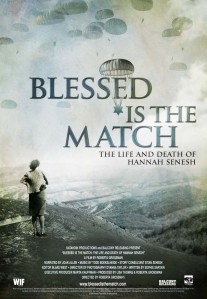 Ridley Scott’s Exodus: Gods and Kings is yet another Hollywood take on the Exodus story. Previous movie tellings include The Ten Commandments (1923), Moses the Lawgiver (1974), The Prince of Egypt (1998), The Ten Commandments (2007), and the most famous movie by that name, The Ten Commandments (1956) with Charlton Heston. Exodus: Gods and Kings opened to mixed reviews.
Ridley Scott’s Exodus: Gods and Kings is yet another Hollywood take on the Exodus story. Previous movie tellings include The Ten Commandments (1923), Moses the Lawgiver (1974), The Prince of Egypt (1998), The Ten Commandments (2007), and the most famous movie by that name, The Ten Commandments (1956) with Charlton Heston. Exodus: Gods and Kings opened to mixed reviews.
Commentary
If you have read Exodus, you know that this film departs from the Torah in some significant ways. Unlike The Prince of Egypt or the 1956 version of The Ten Commandments, the writers did not seek their extra material in Jewish midrashic literature. This film focuses on an imagining of the relationship of Moses and Ramses II and to some extent sticks there. It might be interesting had Prince of Egypt not already explored that angle with much greater sensitivity and depth.
Christian Bale portrays Moses as a rational man and brilliant general who develops a serious mental illness involving psychosis, seeing little boys who open their mouths and turn out to be the God of Israel. Later in the film, it turns out that he isn’t hallucinating, after all: he really is talking to a deity who looks like a ten year old boy. The burning bush appears but seems to be mere scenery. The plagues appear to be natural events until they suddenly morph into unnatural events.
I found the middle part of the film unconvincing and boring. Moses attempts to train the Israelites for a guerrilla war. Given that they are slaves, they appear to have a lot of free time and energy, and no one makes inquiries as to their activities – it’s all odd. Then that section goes nowhere when the deity decides that this isn’t the way to go.
I got the impression that the writers couldn’t settle on one version of Exodus. An imagining of the story without God or miracles would be interesting, and a retelling of some neglected aspect of the story would be interesting – but a mishmosh of versions of the story was spectacularly UNinteresting.
Questions for Study
1. Towards the end of the film, Pharaoh, holding his dead child, confronts Moses and asks, “What kind of god DOES this?” That is the best question raised by this film. Considering any the versions of the story you’ve read, how would you answer that question?
2. A game: how many departures from the Biblical text can you find?
3. Is there any way in which this film did illuminate the story for you? How does it compare with the other film versions? With the versions in the Haggadah and the Torah?
4. If you were going to write a screenplay for the Moses story, where would you focus?










